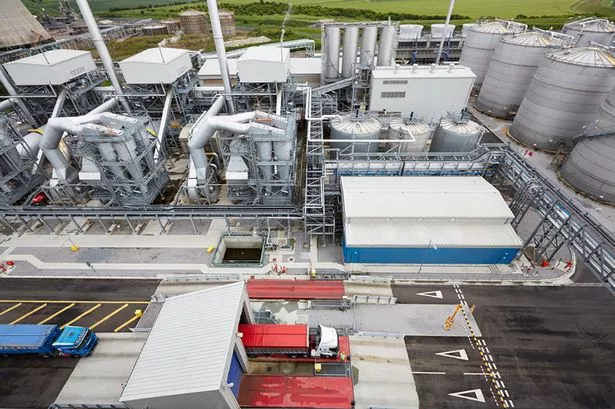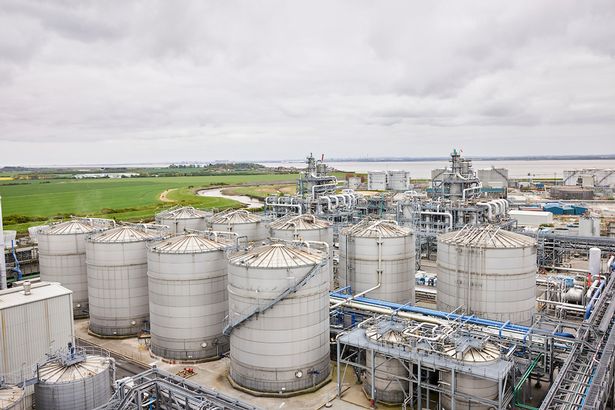
The Saltend plant is a ‘critical part’ of the plans
A £1.25 billion green jet fuel investment hangs in the balance and could be relocated abroad if Britain’s biggest bioethanol facility is to close, a company has said. Emergency discussions are underway to save Vivergo Fuels, near Hull, in the wake of the decision to end the 19 per cent tariff on American bioethanol imports through the recent UK-US trade deal.
On Friday, Meld Energy warned that the situation threatens to derail its ambitious plans for a “world-class” sustainable aviation fuel venture on the Humber. The company struck a £1.25 billion deal with Vivergo earlier this year to establish a Sustainable Aviation Fuel (SAF) plant at Saltend Chemicals Park.
Chris Smith, Meld Energy’s chief executive and founder, said: “We’re excited about the potential to bring our sustainable aviation fuel project to the Humber – one of the UK’s most important industrial and energy hubs. But, for projects like ours to succeed and the flow of vital investment to be forthcoming, we need a strong and integrated low-carbon ecosystem.
“A bioethanol plant on site at Saltend is a critical part of that mix. Without it, we’d have to consider alternative locations overseas where that infrastructure is already in place.”
Mr Smith’s comments came as the Vivergo facility prepared to receive its final scheduled wheat shipment from a Lincolnshire farm, marking another step in the site’s ongoing shutdown process. Vivergo’s managing director Ben Hackett wrote a letter to wheat farmers earlier this year, outlining that the facility would only be able to fulfil existing contractual commitments for wheat acquisitions while the uncertainty continues.
Mr Hackett said: “Building a future fuels cluster here in Hull would deliver major economic, environmental and strategic benefits not just for the Humber, but for the whole country. We have the site, the skills, the supply chain and the ambition to lead the way on sustainable aviation fuel. But, without urgent Government support for British bioethanol, the UK risks losing that opportunity, along with the jobs and billions of pounds in investment that depend on it.”
Last month, the company, which comes under the ownership of Associated British Foods (ABF), announced it was launching staff consultations to close down the facility – which provides employment for more than 160 people – due to the precarious circumstances, a move that could end production by September 13 without support.
Vivergo Fuels and Ensus in Teesside are currently engaged in critical discussions with the Government. Both companies argue that the UK-US trade agreement and industry regulatory restrictions have made it impossible to rival heavily subsidised American alternatives.
A Government spokesperson said: “We recognise this is a concerning time for workers and their families which is why we entered into formal discussions with the company on potential financial support last month. We will continue to take proactive steps to address the long-standing challenges the company faces and remain committed to working closely with them throughout this period to present a plan for a way forward that protects supply chains, jobs and livelihoods.”
The Government said that officials and ministers have held regular meetings with Vivergo and Ensus over recent months to explore solutions for the “significant challenges” that have affected the bioethanol sector for a considerable period. It added that discussions with the firms “continues at pace” and that external consultants have been enlisted to provide assistance.


